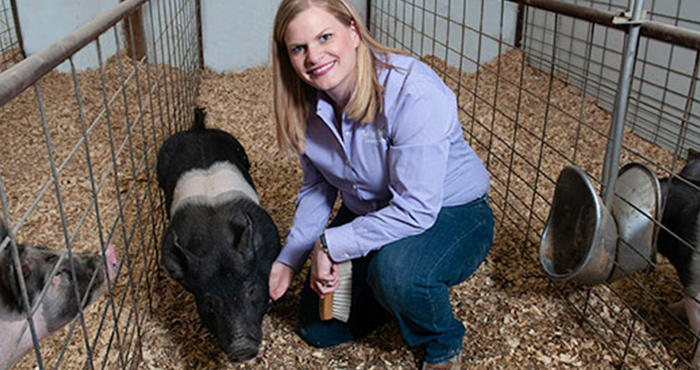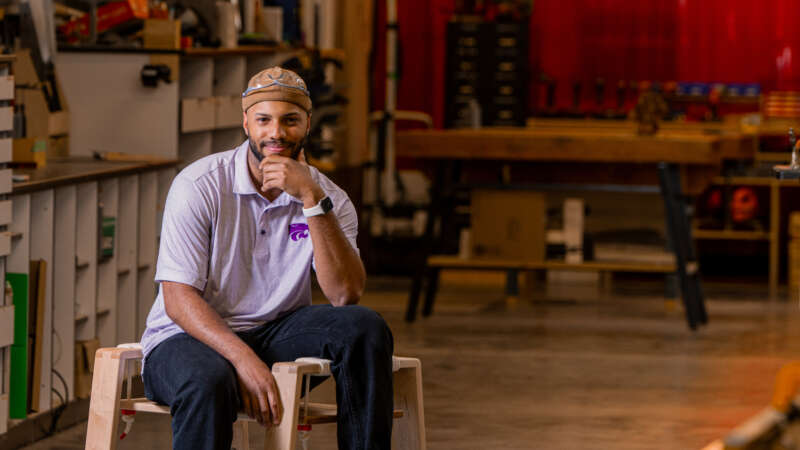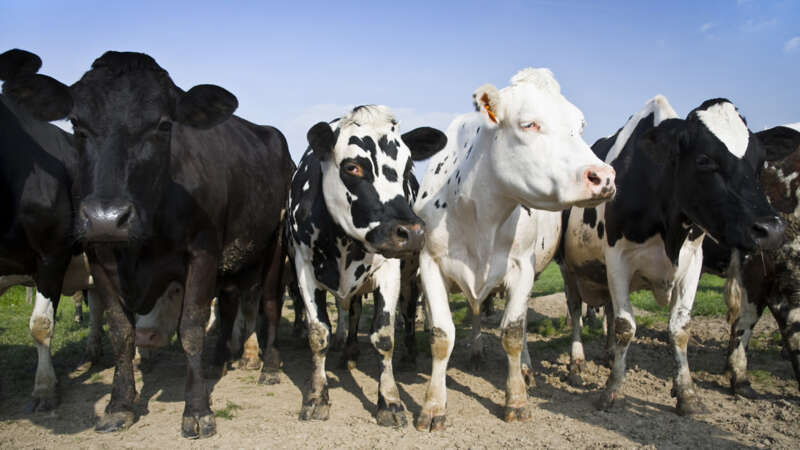Feeding food animals so we all are healthier
The smell of bacon gets the mouth watering (unless you’re a vegetarian!). K-State scientists work to ensure that food animals, like swine, are healthy so we are also healthy.
“As a researcher, I study the role of feed and pet food in pathogen transmission to animals. As a teacher, I help students learn about research by conducting course-based undergraduate research projects,” said Cassandra Jones, professor of animal sciences and industry. “These are classes where 20 students collectively conduct a research project together. They learn about experimental design, care for the animals and collect data; and analyze and report the results. Through this class, they put the experimental method to practice and learn it in a hands-on manner while gaining experience with different animal species. So far, we have conducted projects with poultry, swine, goats and beef cattle.”
While the research has many objectives, there are three goals that Jones hopes to accomplish, with student success and learning being of upmost importance.
“This research has a few key goals. First, students learn to appreciate how animals can be used ethically for research purposes. Many of our students are interested in becoming veterinarians or animal scientists but do not have the background experience with different species. In many cases, this class is the first time they have collected a blood sample or given a vaccine, and they are doing so under the supervision of faculty and with relevant approvals to minimize animal distress,” Jones said. “Second, students apply critical thinking skills to distinguish fact during the interpretation of results. They learn that science is not ‘yes or no,’ but the same data can be interpreted or applied differently depending upon the situation. Finally, students gain skills in oral and written communication and teamwork, which will be necessary for their success as future researchers.”
Jones believes that it is the students doing the research and not the research itself that will be the key to the future of the animal science industry. “Even though I’ve been part of a successful team of researchers, I consider myself a teacher at heart,” Jones said. “I genuinely love students and interacting with them at this transformational stage of their lives. I have tried to pair this enthusiasm with my research experience to develop an evidence-based teaching program so that students learn how to learn.”





